
RETURN TO HOME PAGE
Click to meet our Chin.... !! Available Puppies !!
*Click Raising your Chin Puppy....
Adoption Information
Dog Vaccinations
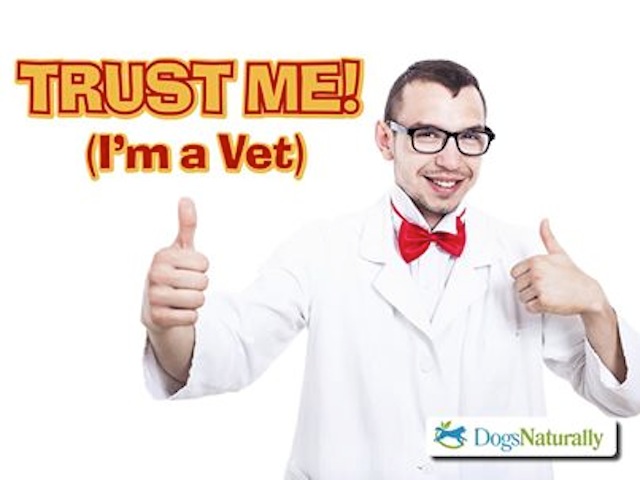
NOOOOOO !!!!
IF we vaccinate... we vaccinate at 18 weeks of age
HALF DOSE and only for the following:
Distemper, Adenovirus Type 2, Parainfluenza, Parvo (MLV)
NEVER LEPTO, CORONA, FLU, LYME, RNA OR ANYTHING ELSE
As puppy matures, the maternal antibody count will lower until
it will not register on laboratory Titre test, THIS IS NORMAL and we WANT this to happen.
Because vaccines, will not be effective, UNTIL this happens.
Rest assured your puppy will still have antibodies, even if not detectable on a lab test,
just the vaccines (not RNA) are used, to boost antibody count, higher.
Anything else you choose to put in, or on your puppy, can have serious adverse reactions
and permanent health issues, the first time, and or over time.
Please read below to find out WHY we have chosen this.
HARMFUL TOXINS IN VACCINES
WARNING 2023 Bill Gates is at it again, and has put RNA into Pet Vaccines !!!!
PLEASE ensure your Vet is NOT using RNA Vaccines (genetically modifying puppy)
as they are KNOWN to cause Cancer, Chronic health problems or Death !!!
Nobivac by Merck, is the RNA Rabies vaccine, many Vets are using, BEWARE.
List of American Holistic Veterinarians
List of Vets following Protect the Pets Protocol
List of Ontario Holistic Veterinarians
Over the years many pet owners and some "honest" non-corporate veterinarians have become concerned
about the harmful effects of Vaccines and especially over vaccinating (yearly vaccines)
Issues of concern such as dogs developing immune disease, such as but not limited to:
Immune Mediated Haemolytic Anaemia (IMHA), Autoimmune Haemolytic Anaemia (AIHA)
Thrombocytopenia, autoimmune meningitis (especially from Lepto vaccine)
Neurological disorders (often mislabelled as juvenile epilepsy), Meningoencephalitis, Encephalitis
(infection from Vaccine causing swelling of the brain)
Brain tumors, and Cancers, are also on the rise, because of vaccines.
!!! Seizures are also caused by Vaccines and or Flea/tick poison reactions !!!
COMMON MYTHS:
Canine vaccines provide Immunity
Canine Vaccines have been tested and are safe
TRUTHS:
Canine vaccines have not been tested for safety, we are the test.
Canine vaccines do not provide immunity.
Canine vaccines contain toxins that can cause permanent health problems
immediatly and or over time, because of these harmful ingredients are in them as "Adjuncts":
Aluminum
Formaldehyde
Monosodium glutamate (MSG)
Squalene
Gelatin
Polysorbate 80
glycerin
Mercury

Your puppy comes with maternal antibodies, that will provide puppy
with a 'natural' immune response, for: Distemper, Adenovirus Type 2, Parainfluenza, Parvo.
Some may think once their dog is vaccinated they can't catch a virus
but this is not true.
THEY just hope and tell us, that vaccines "stimulate" antibody production
that will fight diseases. HOWEVER maternal antibodies are passed onto pups
and without any harmful toxins added.
Viruses also are survivors, and have different strains and reinvent themselves.
So unfortunately, dogs definitely can still catch a virus, even if they are vaccined.
Maternal antibodies passed from mom to pups, are said to be more robust, stronger
response, to viruses, than artificially generated response from vaccines
and we believe will also be more robust responsive to current strains,
through mom's exposure, to other dogs and environments and NOT expose puppy
to toxins contained in Vaccines.
Maternal antibodies are said to be present (detectable) until puppy is 18 weeks of age (often longer)
And this is why we encourage our puppy people to research and consider NOT to vaccinate until
18 weeks of age and with 1/2 dose of Vaccine and DO NOT REPEAT for 12 months.
Reason behind this, is that any vaccines given while there is still Maternal antibodies detectable, will
be neutralized. THAT is why Vets will give series of "3" shots.
First two vaccines to fight with maternal antibodies and the 3rd vaccine to stimulate antibody production.
Rabies 1/2 dose if possible, and never before 6 months of age and never RNA
People still need to use common sense and be cautious keeping puppy from strange grassy areas, woods, strange dogs
Vet officies/floors/counters, to avoid exposure to illnesses and diseases
until puppy is over 6 months of age especially, when it is said their immune system is fully developed.
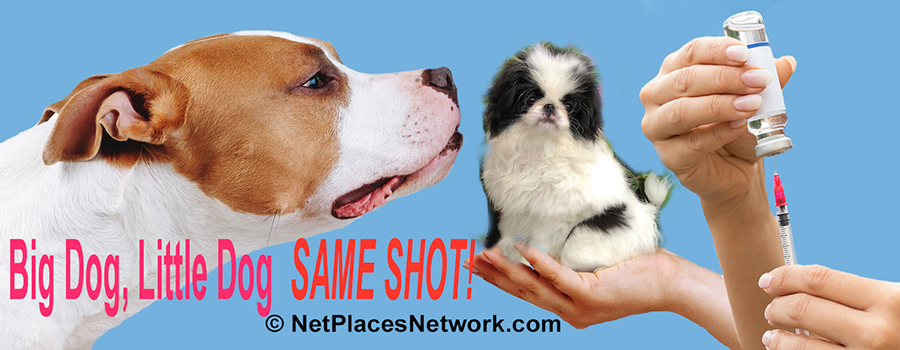
(a tragic tale)
Veterinarians, receive training from Pharmacutical "Sales" people !
that is why it is paremount that pet owners educate themselves
on what they will put into, or on, their Japanese Chin !
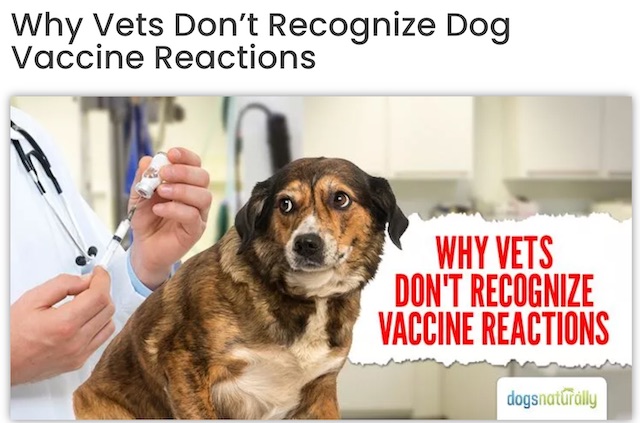
*Link to read about reactions
We hope by providing the best and most up to date information that
our 'puppy people' can make educated choices
for the safety and health of their pets and NOT rely on a Vet (aka salesperson).
BEWARE as of 2023 - Bill Gates has decided to make animal vaccines with MRNA.
PLEASE ask and avoid these, as they are known to cause serious heart damage, neurogical damage and inflamation.
Your pups' health and future health is in YOUR hands.
DON'T BLAME THE BREEDER, BLAME THE $$ VETERINARIAN $$
List of American Holistic Veterinarians
Vets following Protect the Pets Protocol
List of Ontario Holistic Veterinarians
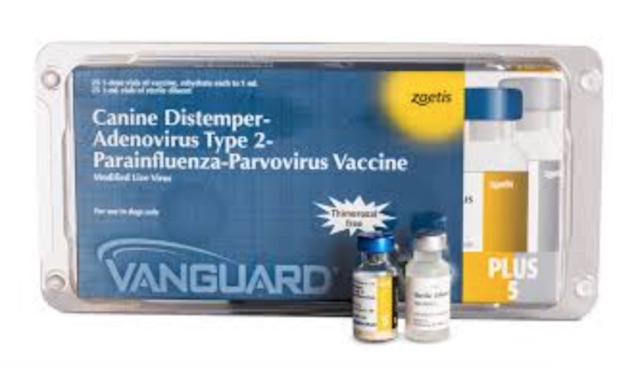
(photo for attention, not for a reccomondation on a brand)
PUPPY VACCINES
My Japanese Chin pups receive their FIRST AND ONLY DAPP vaccination
at 4-6 months of age (or serum Titre test) and they get only "half dose"
of Distemper, Adenovirus Type 2, Parainfluenza, Parvo
Any other injection or combination of injections, will KILL YOUR PUPPY
and or, cause seizures from brain swelling !!!!
MAKE SURE YOUR VET IS NOT injecting or using "DAPPv" as that is a newer vaccine.
Njoy Chin will not refund, should puppy die after receiving Vaccines
JUST SAY "NO"
Always stay with your pet so you can supervise, control, what the Vet is doing
AND ask them to confirm they are ONLY giving half dose of DAPP.
NEVER let them take your pet "to the back" for blood work or vaccines
If they refuse to have you there, with your pet, LEAVE and find a better Vet.
We have had pups receive the wrong vaccine, and even vaccinated 2x in one visit and seizure !!!
there has been numerous reports, of pups beaten and or injured.
Always visit the Vet Monday or Tuesday in the morning
so that should puppy have any reactions, the Vet will still be open.
Rabies if you are doing it, it is an extremely harmful vaccine,
that has so many bad, negative side effects. Toys are to get 1/2 dose.
DO NOT DO BEFORE 6 months of age or with any other injections !!
ONLY GIVE 4 weeks from any other vaccines
I have had 2 puppy people IGNORE my advise giving their pups, Meriel Rabies FULL DOSE
along with their vet also injecting DAPP FULL DOSE at the same time and those pups DIED.
They experienced seizures, that got worse, brain swelling and they died.
Rabies contains mercury (Thimerosal is a mercury-based preservative)
YES even the vaccine that says it is mercury free
because mercury wasn't added directly to the vaccine, but used in production
the vaccine manufacturers can claim the vaccine is thimerosal-free.
Half dose vaccines, appropriate for Toy dogs, will provide proper immunity to dogs under 10 lbs.
So ask your vet to give HALF dose to your puppy and or review the Dosage Chart!!!
REMEMBER, 30-35 days AFTER vaccine, your puppy can show adverse reactions (vaccinosis)
(I Repeat 1/2 does vaccine, (or Titre) in 12 months time)
List of informed Vets in your area
Njoy Japanese Chin greatly encourages owners to find Holistic Vets when ever possible.
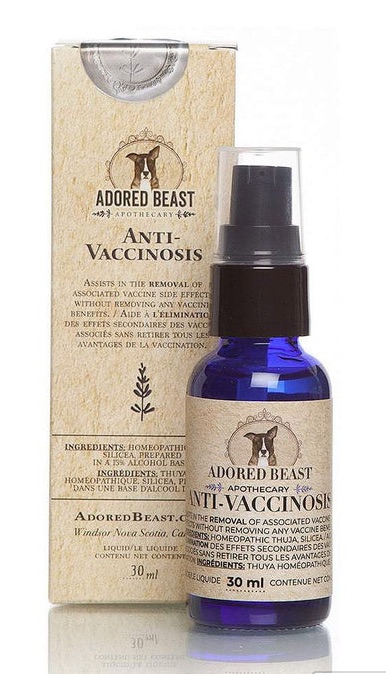
I have had a breeder tell me that she uses "Rebalance"
to help combat side effects from vaccines, with good success.
Homeopathic remedies are often effective on vaccine-related problems.
Some of the more common vaccinosis remedies used are thuja occidentalis, silicea,
sulphur, malandrinum, mezureum and lyssin.
Homeopathic Remedy Info
Homeopathic Remedy Info
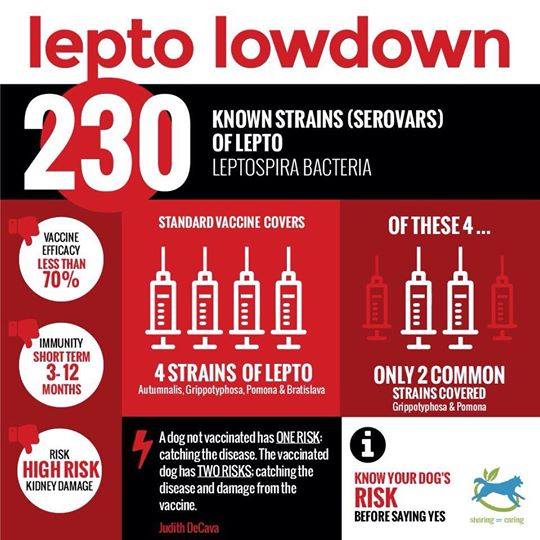
NEVER EVER, LEPTO, CORONA, LYME, FLU, OR BORDETELLA (kennel cough)
STILL use common sense and avoid dog parks, public lawns and contact with foreign feces (poop)
Lepto Vaccines used, RARELY are for the strain of Lepto in your area, so why RISK your puppy's health ?
*Click to view Dr. Dodd's speaking about immunity in 2020
and Dr. John Robb - Protect the Pets are huge advocates for serum titre testing and or administering
appropriate dose vaccines for size of the dog.
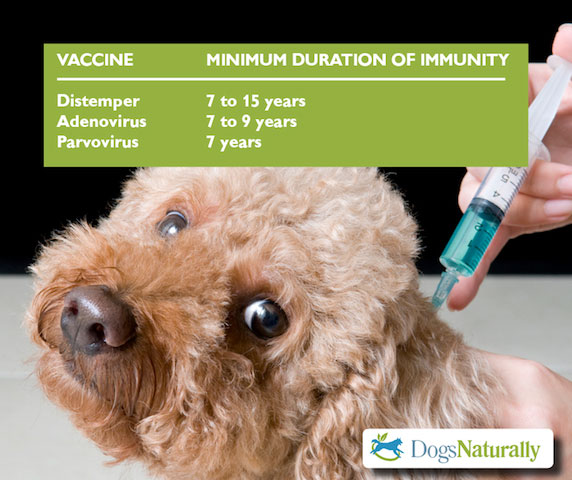
Dogs are believed to need initial series of vaccines, after maternal antibodies wear off
in order for them to have life time antibodies, to fight off diseases
(aka ability to fight diseases, protection from diseases)
This is well documented and uncontested.
When and how often, to vaccinate, is the big debate and
Dr. Schultz and Dr. Dodds
are sharing their clinical findings, and the world, is starting to listen, for the health of our pets.
What is also 100% known, is that no dog, needs yearly vaccines.
The best and most effective method to guarnatee puppy has protection is to serum titer test a pup,
who has not yet been vaccinated. If the test shows that sufficient maternally
derived antibodies are still present, vaccination is pointless,
as the antibodies will neutralize the vaccine.
Keeping in mind that ANY Positive results, even if less than ideal number, means that puppy HAS Immunity.
My Japanese Chin parents, have had vaccines and have strong antibody to pass to their offspring.
WE RECOMMEND WHEN IN DOUBT, TITRE TEST:
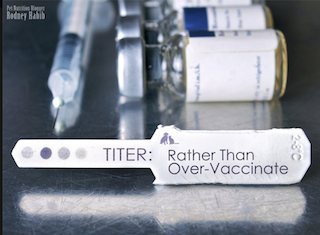
Titres Testing cost around $50.00 for distemper, Parvo, Adenovirus
and it is recommended repeat Titres every 3-4 years time to check the antibody count
as you may NOT need to vaccinate.
NO LYME, LEPTO OR CORONA VACCINES EVER

Our vet and most "health clinics", charges $50.00 for Titres.
BUT, this is my belief and you will have to read current information and make
an informed choice for yourself and your Japanese Chin. Your Vet works for you and is a salesperson
with products to sell, it is up to you the owner to make informed choices for your pet's health !!!
VACCINATION FACTS
Your puppy is said to have protection 36 hours after receiving Vaccination (if vaccination was needed)
Your puppy could "shed" antigen or be contagious 3-10 days after receiving a vaccination.
Maternal antibodies (protection from common canine diseases)
should last at least until 16 weeks of puppy age
RABIES VACCINE
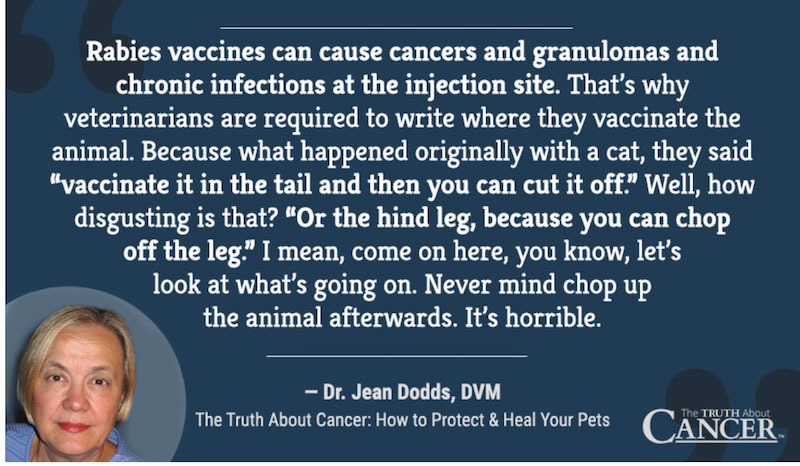
RABIES
Some States might require Rabies vaccine earlier than 6 months.
You can follow your state law and harm your puppy, or just not go to the Vet
until they are 6 months of age and better able to handle the half dose Rabies Vaccine.
LEGALLY in most of North America, you are only obligated to vaccinate for Rabies
every 3 years as of 2017, (soon to be changed to every 7 years)
ANY and all other vaccines are totally up to YOU and not legally required.
Rabies contains mercury (Thimerosal is a mercury-based preservative)
YES even the vaccine that says it is mercury free
because mercury wasn't added directly to the vaccine, but used in production
the vaccine manufacturers can claim the vaccine is thimerosal-free.
Rabies vaccine is dosed for the size of an 80lbs dog
so we want you to wait until puppy is their adult weight
before you give them a 1/2 dose Rabies vaccine, so less of a chance of them overdosing.
NEVER BEFORE 6 MONTHS OF AGE, at least
I would prefer people to wait until 12 months of age, if this is possible.
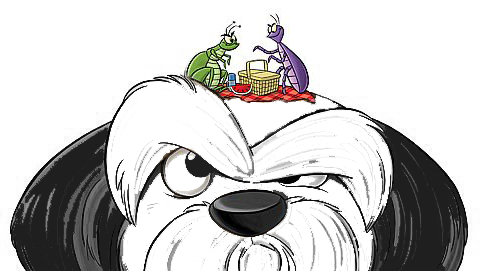
*Click to learn about FLEAS AND TICKS
I do want people to keep in mind that applying pesticides/insecticides
is putting POISON into your puppies system
the same time you are compromising their immune system
with injecting diseases (vaccines) into their bodies that are growing.
So we recommend
that you do not vaccine when you are administering other products.
Break it up if at all possible. Also never give Rabies the same time as other vaccines.
INFORMATION ABOUT VACCINES:
NEW PRINCIPLES OF IMMUNOLOGY
"Dogs and cats" immune systems mature fully at six months.
If a modified live virus vaccine is given after six months of age,
it is said to result in immunity, which is good for the life of the pet
(i.e.: canine distemper, parvo, feline distemper).
If another MLV vaccine is given a year later, the antibodies from the first vaccine
neutralize the antigens of the second vaccine and there is little or no effect.
The titer is not "boosted" nor are memory cells induced. Not only are
annual boosters for parvo and distemper unnecessary
they subject the pet to potential risks of allergic reactions
and immune-mediated haemolytic anemia.
There is no scientific documentation to back up label claims for annual administration of MLV vaccines.
Puppies receive antibodies through their mother's milk. This natural protection can last 8-16 weeks.
Puppies and kittens should NOT be vaccinated at LESS than eight weeks.
Maternal immunity will neutralize the vaccine and little protection (0-38%) will be produced.
Vaccination at six weeks will, delay the timing of the first highly effective vaccine.
Vaccinating too early will also interfer with Robust Maternal antibodies that are protecting puppy.
Vaccinations given two weeks apart suppresses, rather than stimulate the immune system.
Vaccinating at 4-6 months and Titre testing in 12 months is what we reccomend based on the latest studies.
Over the years many pet owners and veterinarians have become concerned
about the potentially harmful practice of annual re-vaccination.
As immune disease such as but not limited to: Autoimmune Haemolytic Anaemia (AIHA)
Cancer and Chronic Disease in canines increase.
As a result of these facts, new studies on the duration of immunity are being done.
Dog Vaccinations Be Informed

DHLPPC:
This is a combo vaccination that covers numerous diseases with one injection. What do all those letters stand for?
- D = Distemper:
Distemper is a nasty virus that is highly contagious, occurs world wide, and at one time was the leading cause of death in puppies. Young puppies are more susceptible to the virus then adult dogs. You may see signs of an upper respiratory infection with a high fever, the dog may also have neurological signs. This disease is often fatal.
- H = Hepatitis or Adenovirus-2:
This is spread by contact with the urine and feces of infected animals. The virus causes liver and kidney damage, animals that survive may have chronic illness. Symptoms include but are not limited to: fever, lethargy, anorexia, abdominal pain, and bloody diarrhea.
- L = Leptospirosis:
This disease affects the liver and kidneys and is deadly. Animals with this disease are contagious to other animals and humans. A positive dog should be isolated and the caregiver should wear protective clothing and gloves. The disease is spread through contact with urine of infected animals. Dogs with leptospirosis may show signs of lethargy, dehydration, jaundice, and fever.
Most Leptospirosis strains (there are about 200) do not cause the Leptospirosis disease
and of the seven clinically important strains
only four ~ L. icterohaemorrhagiae, L. canicola, L. grippotyphosa, and L. pomona serovars ~
are found in today's vaccines.
So, exposure risk, depends upon which serovars of Lepto have been documented
to cause clinical leptospirosis in the area where you live.
You can call the county health department or local animal control and ask.
- P = Parainfluenza:
This is a virus that causes an upper respiratory infection. Dogs usually contract the disease through contact with nasal secretions of infected dogs.
- P = Parvovirus:
This virus attacks the intestinal tract and causes severe vomiting and diarrhea. Parvo is highly contagious, dogs contract the virus through contact with an infected animals stools. Without treatment dogs become dehydrated and weak and often die. This virus is very common and puppies who are not properly vaccinated are often afflicted. Rottweilers and Doberman Pinschers seem to be at greater risk for parvo.
- C = Corona virus:
This virus attacks the intestinal system similar to parvovirus. Infected dogs suffer from vomiting and diarrhea and dehydration. Keep your pet vaccinated and your yard clean to protect your pet.
- L = Lyme Disease:
Some of the symptoms and pathological changes associated with Lyme disease are very similar to those found in autoimmune disease. a small portion of infected dogs do develop sore, painful joints weeks or months after infection. Some of these dogs run low-grade fevers. The signs you read about in humans with Lyme almost never occur in pets.
Simple arthritis is usually constant in the joints it affects. But lameness due to Lyme disease often shifts from leg to leg. These swollen joints are usually hot and painful and occasionally the lymph nodes at the base of the legs may be slightly enlarged as well.
The front leg are most commonly affected. When they are, it is the lymph node on the shoulder of that leg that may be enlarged. Many of the sick dogs are depressed. They may yelp when these joints are pressed and be quite reluctant to walk. When they do walk, they walk with a stiff shuffling gait and an arched back because of the pain.
Prevention is key
Flea and Tick prevention options and if your dog is exposed to ticks then perhaps yearly testing might also be an option for you to consider.
RABIES 3 year protection:
 ...
...
Phizer Defensor 1 (one year protection) and Defensor 3 (3 year protection)
Rabies :
Rabies is a virus that affects the nervous system and is always fatal.
There is no known cure for rabies, to confirm a case the brain tissue must be examined.
The latest Rabies vaccination protocol is that after a series of two vaccinations the dog will only need to be revaccinated every 3 years
Depending on the Rabies Brand of Vaccination. Ask your vet if you can read the label if you are unsure.
In adult dogs, rabies vaccinations are valid for either one or three years.
If an expiry date is not indicated on the certificate, the vaccination is assumed to be valid
for only one year after administration. So make sure your Vet indicates the next booster is not due for 3 years !

Bordetella:
This is an upper respiratory infection also known as kennel cough. This infection is usually not fatal but is a pain to get rid of.
In an otherwise healthy dog will clear up all on it's own, just like the human cold
and just like the human flu virus there are strains of bordetella.
If you are bording your dog they usually do require this vaccination.
Leptospirosis, There is a vaccine for leptospirosis, but I absolutely don't recommend it.
Leptospirosis symptoms are pretty easy for owners to spot and receive treatment for.
Most common antibiotics will kill leptospira such as ordinary penicillin,
tetracycline and erythromycin all work well.
So owners have to consider if the 1/1000 chance
(please confirm stats for your area) of their dog catching Lepto,
is worth the risk of yearly exposing their dog to life threatening toxins
being injected into their dogs, causing lifelong health problems.













 ...
...
